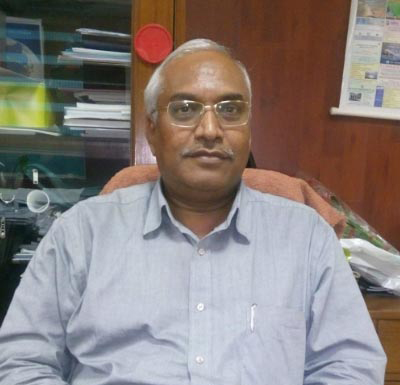
DR K J RAMESH
Former Director General, India Meteorological Department (IMD) Advisor, South Asia Hydromet Forum, RIMES
Dr. K.J. Ramesh is a distinguished meteorologist and climate scientist, currently serving as Advisor to the South Asia Hydromet Forum at the Regional Integrated Multi-Hazard Early Warning System (RIMES). He served as Director General to the India Meteorological Department and the Permanent Representative and Member Executive Council of WMO during 2016-19.Dr. Ramesh is widely recognized for steering India’s transition toward high-resolution weather forecasting systems and strengthening its early warning capabilities. His areas of specialization include numerical weather prediction, monsoon dynamics, climate and hazard risk assessment, and disaster mitigation modelling.
Prior to leading IMD, Dr. Ramesh held key scientific and administrative roles: he conducted monsoon research at IIT Delhi for over a decade, served as Group Head at the National Centre for Medium Range Weather Forecasting (NCMRWF), and led the Disaster Management Unit of the Government of Andhra Pradesh. At the Ministry of Earth Sciences, he was responsible for atmospheric science services and the development of national climate change research programs.
An elected Fellow of the Andhra Pradesh Academy of Sciences and Member of the National Academy of Sciences, Allahabad, Dr. Ramesh has authored more than 50 peer-reviewed scientific papers. His rich expertise and leadership continue to shape South Asia’s strategies in weather forecasting, climate resilience, and disaster preparedness.
Air pollution in India is an escalating environmental and public health concern, contributing to a rise in respiratory and cardiovascular diseases. In this episode of GnY Live, Dr K J Ramesh, former Director General of the India Meteorological Department (IMD), shares his insights on the current air quality situation. The conversation delves into the health hazards caused by air pollution, including respiratory and cardiovascular issues, and the importance of monitoring and modelling pollution to manage it effectively. Dr Ramesh highlights challenges in current pollution models and proposes using UAV drones for more granular, real-time pollution data. He also evaluated the effectiveness of the Commission for Air Quality Management (CAQM) in Delhi NCR and advocated for a more integrated, nationwide approach to pollution control. The experts call for a better air quality monitoring network to support the creation of a National Commission for Air Quality, emphasising the need for comprehensive data collection over the next several years.
Read more
Heatwaves in India have evolved from seasonal anomalies to one of the country’s most pressing climate emergencies. While the meteorological understanding of heatwaves has advanced significantly, facilitating district-level forecasts and real-time monitoring, the institutional response remains uneven and often ineffective. Dr. K.J. Ramesh, former Director General of the Indian Meteorological Department (IMD), discusses the nuances of heatwave categorization, local versus national recognition of disasters, scientific advancements in forecasting, and the challenges of policy compliance at grassroots levels. This conversation probes the intersections of science, governance, and socio-economic vulnerabilities, advocating for a shift from prediction to action.
Read more
